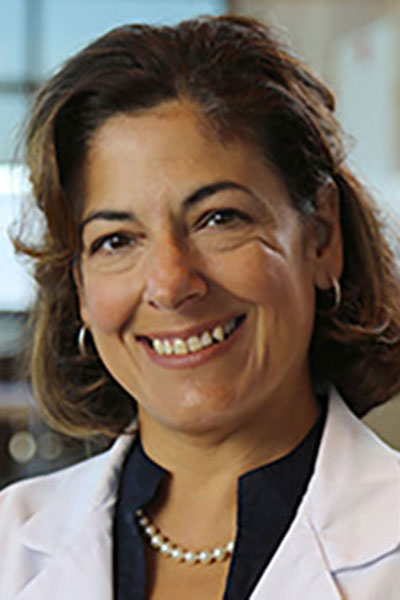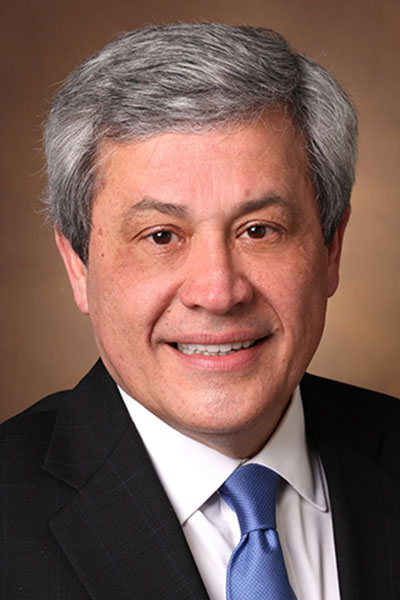
Struggles are nothing new in health care, and breast cancer research and care are no exceptions. The Program Planning Committee for the San Antonio Breast Cancer Symposium (SABCS) recognized that moving forward requires identifying and discussing our biggest obstacles. The Special Session Overcoming the Big Obstacles to Find Solutions for Breast Cancer, 12:00 pm – 2:00 pm CT, Tuesday, December 6, in Hall 3, recognizes that need to address struggles head on.
The session is a new approach that combines various topics that the experts on the program planning committee identified as significant challenges to the overarching goal of curing breast cancer. The session co-chairs, Carlos Arteaga, MD, of UT Southwestern Medical Center and Simmons Comprehensive Cancer Center, and Angela DeMichele, MD, MSCE, of the University of Pennsylvania, developed the concept, which brings together some of the biggest names in breast cancer research from several perspectives — from basic science to clinical research to population science — to focus on what they think are the biggest challenges in breast cancer research.
“This is different from anything we’ve done before,” said Dr. DeMichele. “We’ve lined up a high-profile panel of some of the smartest, most creative, accomplished big thinkers in breast cancer research.”
The discussion, which will include an opportunity for the audience to participate, will help formulate transformative ways to address those issues in the next 5 to 10 years to improve patient outcome and treatment.

The session is expected to generate interesting conversation about areas that need innovation. It could be especially valuable for attendees who will be writing grants, as it might offer perspective on the next big areas of research or what they will need when starting their labs.
Dr. Arteaga and Dr. DeMichele called on the panelists to submit three to five ideas for discussion. From that larger pool of ideas, they whittled the list to six topics with a wide range of interest, from prevention and intervention to precision oncology and funding.
The format will provide about 15 minutes per topic. Panelists will give a short introduction to that topic, and then they will offer their proposals for transformative ways to address those issues. Then the audience and the panel will join for a larger discussion.
This is the first time at SABCS that such a large panel has convened to talk specifically about issues impacting breast cancer research. The session will span 2 hours, giving the panel and audience a chance to cover the depth and breadth of the topics. It will be applicable to anyone who does breast cancer research with topics pertinent to both junior faculty, mid-level career faculty and those running cancer departments or cancer centers.
The co-chairs and the panelists are looking for transformative ideas to the problems at the center of the discussion because often the focus is on the nuance of the problem and not how to solve it. This session will consider more far-reaching solutions that can bring big changes.
“We want to really move the needle, not just to dramatically reduce death from breast cancer, but prevent it,” Dr. DeMichele said. “We hope that when people leave this session, they’ll hear the information presented the rest of the week differently.”
Panelists:
Christine Ambrosone, PhD, Roswell Park Comprehensive Cancer Center
Fabrice André, MD, PhD, Gustave Roussy
Regina Barzilay, PhD, Massachusetts Institute of Technology
Joan S. Brugge, PhD, Harvard Medical School
Matthew J. Ellis, MD, PhD, AstraZeneca
Nadia Harbeck, MD, PhD, LMU University Hospital
Yeon Hee Park, MD, PhD, Samsung Medical Center
Lori Pierce, MD, University of Michigan
Patty Spears, BS, UNC Patient Advocates for Research Council
Eric Winer, MD, Yale Cancer Center

